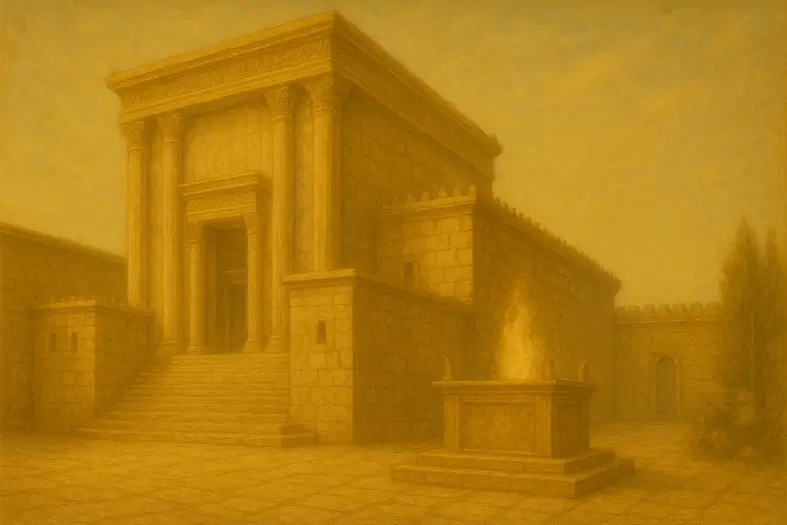


We are commanded to give the shoulder, two cheeks, and stomach of every kosher animal slaughtered to the Kohanim.
This mitzvah, known as Matanot Kehunah (priestly gifts), obligates that whenever an ox, sheep, or goat is slaughtered for consumption, specific parts — the foreleg, cheeks, and maw — must be given to the Kohen.
The mitzvah provides for the Kohanim, who serve the people in the Temple and do not receive a portion of land. It also creates a constant reminder that even in ordinary meals, Hashem’s servants are to be remembered and supported.
The gifts are not sacrificial but apply to all animals slaughtered, whether for private or public use, both in Israel and in the Diaspora (rabbinically outside Israel).
Commentary & Classical Explanation:


Represents Emunah—the deep, inner trust in Hashem’s presence, oneness, and constant involvement in our lives. This badge symbolizes a heartfelt connection to G-d, rooted in belief even when we cannot see. It is the emotional and spiritual core of many mitzvot.
Mitzvot that strengthen communal life — showing up, participating, supporting, and belonging. Community is where holiness is shared, prayers are multiplied, and responsibility becomes collective.
Mitzvot that uphold fairness, honesty, and moral responsibility. Justice is kindness structured — ensuring that society reflects G-d’s order through truth, equity, and accountability.
Represents the concept of spiritual intentionality, purity, and sanctity—set apart for a higher purpose.
Signifies awe and reverence toward Hashem—living with awareness of His greatness and presence.
Mitzvot that define and deepen the relationship between a person and their Creator. These include commandments involving belief, prayer, Shabbat, festivals, sacrifices, and personal holiness — expressions of devotion rooted in divine connection.
Mitzvot that govern ethical behavior, kindness, justice, and responsibility in human relationships. These actions build trust, dignity, and peace between people.

Dive into mitzvos, prayer, and Torah study—each section curated to help you learn, reflect, and live with intention. New insights are added regularly, creating an evolving space for spiritual growth.

Explore the 613 mitzvos and uncover the meaning behind each one. Discover practical ways to integrate them into your daily life with insights, sources, and guided reflection.

Learn the structure, depth, and spiritual intent behind Jewish prayer. Dive into morning blessings, Shema, Amidah, and more—with tools to enrich your daily connection.

Each week’s parsha offers timeless wisdom and modern relevance. Explore summaries, key themes, and mitzvah connections to deepen your understanding of the Torah cycle.